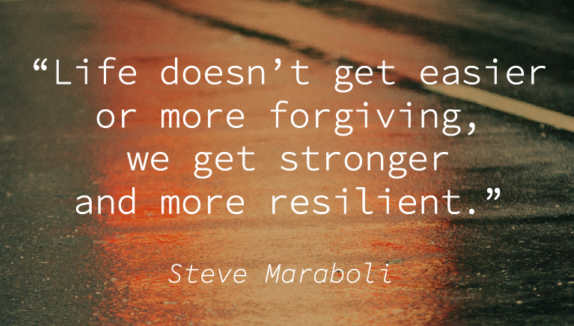Self-Care through Resilience
Self-care is critical for all individuals in some form, but it is especially important for those in the criminal justice field. Self-care strategies are those things an individual does to reduce stress and ultimately rejuvenate ones self. This could be done through a combination of physical, mental, or even spiritual activities. Self-care could be as simple as drinking coffee while watching the sun rise; soaking in the quiet peace of the morning. It can also be as vigorous as playing recreational sports every week, or even a more spiritual approach of reflecting on the weeks sermon in church.
Self-care can be conducted in different ways but also includes making sure ones basic needs are met, such as maintaining a nutritional diet and ensuring one receives ample rest. These are all factors that can be done prior to the induction of stress to better prepare the body, physically, for the challenges to come. An individual can also prepare the mind for mentally challenging situations. Just as one exercises to build their physical stamina, one can also prepare the mind as a form of self-care. Building ones resilience is an effective approach to pre-conditioning the mind for difficult or stressful situations, which in the criminal justice field, is highly likely.
Resilience is the ability of an individual to bounce back in the face of adversity. Resilience skills and personal exposure and experiences all add to the response one might experience when faced with a stressful or traumatic event and can contribute to the level or existence of PTSD as a result of the event. Not every one experiences trauma the same way and not every event triggers a traumatic response from every individual. What we do know is that trauma can prompt a neurological effect in an individual, causing one’s emotional mind to react and essentially blocking the cognitive mind (Van Der Kolk, 2014). Yet, learning effective skills can boost an individual’s ability to cope with overwhelming amounts stress or lessen the physiological impacts.
In 2009, the Army took this concept and teamed up with the Positive Psychology Center at the University of Pennsylvania to develop a program specifically designed to teach resilience skills to Soldiers. The thought was that if Soldier’s learned specific skills designed to increase their resilience, they could better cope with the challenges of combat. These skills include methods that focus on the elimination of irrational thinking (i.e. giving in to the worst case scenario in a life threatening situation) to allow an individual to more clearly assess a situation (i.e. strategizing an escape or counter attack). Resilience skills can also improve personal connections, as connections are linked to an individual’s ability to overcome an event. This could also include skills designed to bring the body to the most optimal state for performance – mental, social, physical, and emotional skills. The idea is that a resilient individual is better equipped to cope with difficult situations and can further use these abilities for post-traumatic growth. Post-traumatic growth is the ability of an individual to experience positive change as a result of a difficult event. “Resilient people tend to take responsibility for their emotional well- being and use the traumatic experience as a basis for personal growth (Southwick & Charney, 2012, p. 13).
Although the concept of resilience and trauma is a fairly new area of study, research has already suggested that resilience does have neurological affects (Friedberg, 2018). Therefore, developing resilience-based skills can contribute to an individual’s wellbeing, their ability to overcome stress and trauma, and their ability to regain control of their mental state. Because these skills focus on improving an individual’s ability to coop with stress, mastering these skills can serve as a form of preventative self-care. In the moment, exercising these abilities can help an individual return to a more positive and constructive mental state, ultimately rejuvenating ones self when it is needed the most.
References:
Friedberg, Ahron & Malefakis, D. (2018). Resilience, Trauma, and Coping. Psychodynamic Psychiatry: Vol. 46, No. 1, pp. 81-113.
Positive Psychology Center. (2019). The University of Pennsylvania School of Arts & Sciences. Accessed online 22 March 2019. https://ppc.sas.upenn.edu/resilience-programs/resilience-research
Southwick, S. M., & Charney, D. S. (2012). Resilience: The science of mastering life’s greatest challenges. New York: Cambridge University Press. Accessed online 29 April 2019. https://doi.org/10.1017/CBO9781139013857
Van der Kolk, Bessel A. (2014). The Body Keeps the Score. New York, NY. Penguin Books.
